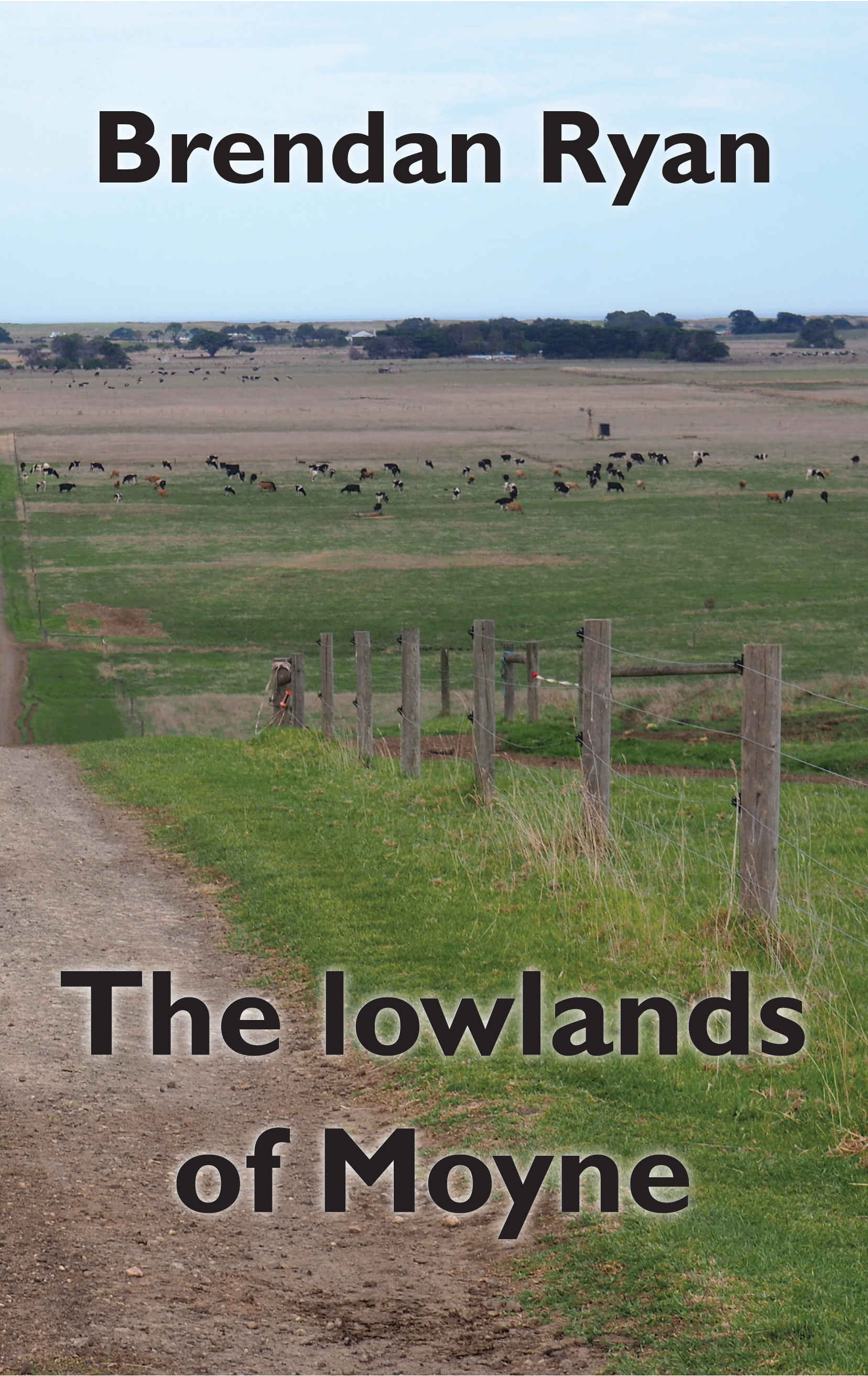
Launch of Brendan Ryan's poetry collection 'The lowlands of Moyne'
Geelong, Victoria - 20th July, 2019.
Walleah Press
I feel somewhat underqualified standing here to speak about The Lowlands of Moyne, Brendan’s sixth collection of poetry, since, at the tender age of 62, I’m still working on my first collection of juvenilia.
 That said, I do have a connection with the Moyne, having been a proud part owner of a horse which ran third in the Moyne Shire Cup in the year 2000.
The winner of that race was named Savrocca which I’m sure would please Brendan and his legion of Collingwood supporters. Incidentally, Savrocca went
on to win the Queen Elizabeth Stakes at Flemington that same year, a race won by the likes of Makybe Diva, so the Moyne Shire Cup is big – as is the
shire itself, taking in as it does the five and a half thousand square kilometres surrounding the city of Warrnambool.
That said, I do have a connection with the Moyne, having been a proud part owner of a horse which ran third in the Moyne Shire Cup in the year 2000.
The winner of that race was named Savrocca which I’m sure would please Brendan and his legion of Collingwood supporters. Incidentally, Savrocca went
on to win the Queen Elizabeth Stakes at Flemington that same year, a race won by the likes of Makybe Diva, so the Moyne Shire Cup is big – as is the
shire itself, taking in as it does the five and a half thousand square kilometres surrounding the city of Warrnambool.
Of course, the Moyne that Brendan writes of is a long way from the perceived glamour of the racetrack: it’s often about mud, muck, blood and ooze;
seepage in the cracks of a dairy’s concrete. In the title poem of this volume for instance, it’s the stories behind scattered bricks, Commodore wrecks
in capeweed, rust, bits of old pipe and discarded whiskey bottles: the remnants of hard lives and hard times and memories of the less well off – a
baby being brought home in a fruit box.
My other favourite poet Philip Larkin would have appreciated Brendan’s poetry. He said, ‘I like to read about people who have done nothing spectacular,
who aren’t beautiful or lucky, who try to behave well in the limited field of activity they command, but also can see, in little autumnal moments of
vision, that the so called ‘big’ experiences of life are going to miss them; and I like to read about such things, not with self-pity or despair or
romanticism, but with realistic firmness and even humour.’
Virginia Woolf in a highly regarded essay on Daniel Defoe and especially Robinson Crusoe makes much of Defoe’s rare ability to drive his fiction
through the identification of ‘facts’, a gift she says, that goes beyond descriptive prose. Famously she cites the episode where Crusoe is washed
up on the beach and gradually realises that though alone, he is accompanied by, three hats and one cap – two shoes, but that the shoes do not make
a pair. In other words, everything is odd because it is, not because it has necessarily been described as such.
In that light, consider the opening of Brendan’s poem, ‘She Was a Mugavin’
She was a Mugavin before she was an O’Keefe.
They owned that farm on the Three Chain Road.
Her father was a great man, like salt and pepper
he was in everything. When he died, the son
took over, married that Gleeson girl.
What was her name?
Buy the book and read this poem in its entirety, and very soon you will appreciate, as its very last line suggests, that each name mentioned
presents a point of departure.
Consider also, the opening of ‘Farmer’s Wife’.
Cracks in the clay, locusts flittering over bleached stalks
a woman steals a look from a farm house kitchen window.
She married into the district, thin as a whisper -
a woman who was summoned to the front rows at Mass…
I sense almost a hyper-reality here, like the feeling you get from looking at a painting by Edward Hopper because ‘the facts’ seem so right.
The other aspect of this is that, through his six collections of poetry, Brendan has documented the lives, idioms and linkages to the landscape of
several generations of western districts farmers and the communities they form. I think there is something truly important and Hardyesque about this,
and the fact that so many of us still delve into Hardy’s Wessex is proof of this importance. Indeed, I’m convinced that in a hundred years when all of
us have moved on, these poems will still be read and appreciated both as social history and as beautifully crafted works in their own right.
In conclusion we will lean on that other, other favourite, W.H. Auden to provide us with something a little bit dairy. He defined a poet’s hope thus:
to be, like some valley cheese, local, but prized elsewhere.
So, Brendan, can I implore you to continue being a bit like a valley cheese and thank you on behalf of all of us who reside in the next valley and the
one beyond that. Can I congratulate you also on your new collection, and thank you personally for the opportunity to participate in the launch of The
Lowlands of Moyne.
Barry Gillard lives, writes and teaches in Geelong, Victoria.